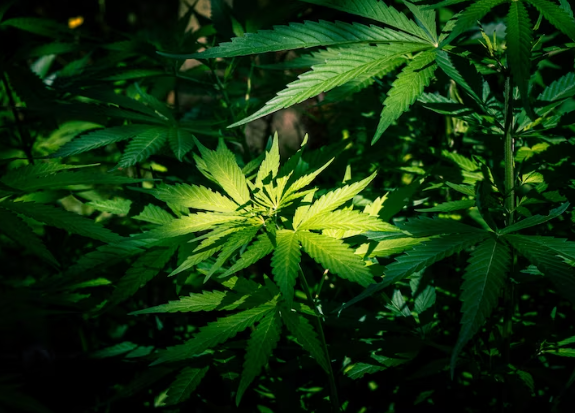
Hemp: Paving the Way for a More Sustainable and Eco-Conscious World
In recent years, there has been a growing global interest in finding sustainable and eco-conscious alternatives to various industries. One such solution that has gained immense popularity is hemp. Hemp, also known as industrial hemp, is a versatile plant that offers a wide range of benefits and applications. From textiles to construction materials, hemp is paving the way for a more sustainable and eco-conscious world. In this article, we will delve deeper into the incredible potential of hemp and explore how it is transforming various industries.
Hemp: An Eco-Friendly Marvel
Hemp has garnered attention for its exceptional eco-friendly properties. This versatile plant requires minimal water, pesticides, and herbicides to thrive, making it a sustainable and environmentally friendly crop. Additionally, hemp grows rapidly, maturing in just a few months, and it can be cultivated in diverse climates. By choosing hemp over other traditional crops, we can significantly reduce the environmental impact caused by extensive water usage and the release of harmful chemicals into the ecosystem.
LSI Keyword: Sustainable farming practices
Hemp cultivation promotes sustainable farming practices by reducing water consumption, pesticide usage, and environmental pollution.
Hemp in Textiles: Fashion with a Conscience
The fashion industry is notorious for its negative impact on the environment. However, hemp offers a sustainable alternative to traditional textiles. Hemp fibers are incredibly durable, breathable, and resistant to mold and mildew. These natural qualities make hemp ideal for producing clothing, accessories, and home textiles. By choosing hemp-based fabrics, consumers can support the development of a more sustainable fashion industry.
LSI Keyword: Eco-friendly fabrics
Hemp textiles are eco-friendly, biodegradable, and renewable, making them an excellent choice for environmentally conscious consumers.
Building a Greener Future with Hemp Construction
The construction industry is one of the largest contributors to greenhouse gas emissions and waste production. Hemp construction materials provide an eco-conscious solution to mitigate these environmental challenges. Hempcrete, a mixture of hemp fibers, lime, and water, is an excellent alternative to traditional concrete. Not only does hempcrete have excellent insulation properties, but it also sequesters carbon dioxide during its production, helping to combat climate change.
LSI Keyword: Sustainable building materials
Hemp-based construction materials offer sustainable alternatives to reduce the carbon footprint of the construction industry.
Hemp’s Potential in Energy Production
As the world continues to seek renewable energy sources, hemp is emerging as a promising candidate. Hemp biomass can be converted into biofuels, such as biodiesel and ethanol, which have significantly lower carbon emissions compared to fossil fuels. Moreover, hemp plants have a high biomass yield, making them a valuable resource for bioenergy production.
LSI Keyword: Renewable energy sources
Hemp biomass presents a renewable energy source that can contribute to reducing reliance on fossil fuels.
Hemp: A Natural Solution for Health and Wellness
Hemp is not only beneficial for the environment but also for our health and well-being. Hemp seeds are highly nutritious and packed with essential fatty acids, protein, and minerals. They are also a rich source of omega-3 and omega-6 fatty acids, which play a vital role in maintaining a healthy cardiovascular system. Additionally, hemp-derived CBD (cannabidiol) has gained recognition for its potential therapeutic benefits, including pain relief, anxiety reduction, and anti-inflammatory properties.
LSI Keyword: Nutritional superfood
Hemp seeds offer a nutrient-dense superfood option, providing a range of health benefits when incorporated into a balanced diet.
FAQs (Frequently Asked Questions)
Q: Is hemp the same as marijuana?
No, hemp and marijuana are different varieties of the Cannabis sativa plant. While they belong to the same plant family, hemp contains low levels of THC (tetrahydrocannabinol), the psychoactive compound responsible for marijuana’s intoxicating effects. Hemp is cultivated for industrial purposes, while marijuana is primarily grown for its recreational or medicinal use.
Q: Can hemp be used as a building material?
Yes, hemp has gained recognition as a sustainable and eco-friendly building material. Hempcrete, a mixture of hemp fibers, lime, and water, is used as an alternative to traditional concrete. Hemp-based construction materials offer excellent insulation properties and contribute to reducing the carbon footprint of the construction industry.
Q: Is hemp environmentally friendly?
Yes, hemp is considered environmentally friendly due to its sustainable cultivation practices. Hemp requires minimal water, pesticides, and herbicides to thrive, making it a greener alternative to other crops. Additionally, hemp plants absorb a significant amount of carbon dioxide during their growth, aiding in the fight against climate change.
Q: How can hemp benefit the fashion industry?
Hemp offers a sustainable alternative to traditional textiles in the fashion industry. Hemp fibers are durable, breathable, and resistant to mold and mildew, making them ideal for clothing, accessories, and home textiles. Choosing hemp-based fabrics supports the development of a more sustainable fashion industry.
Q: Can hemp be used to produce renewable energy?
Yes, hemp biomass can be converted into biofuels such as biodiesel and ethanol, providing a renewable energy source. Hemp’s high biomass yield and low carbon emissions make it a promising candidate for sustainable energy production.
Q: Is hemp safe for consumption?
Yes, hemp seeds are safe and highly nutritious. They are a rich source of essential fatty acids, protein, and minerals. Hemp-derived CBD has also gained recognition for its potential therapeutic benefits. However, it’s essential to purchase hemp-derived products from reputable sources to ensure quality and safety.
Conclusion
Hemp is revolutionizing the world with its sustainable and eco-conscious properties. From textiles to construction materials, hemp offers a versatile and environmentally friendly solution across various industries. By embracing hemp, we can pave the way for a more sustainable future, mitigating environmental impact and promoting greener practices. As the demand for sustainable alternatives continues to rise, hemp emerges as a frontrunner, embodying the principles of sustainability, innovation, and a more eco-conscious world.